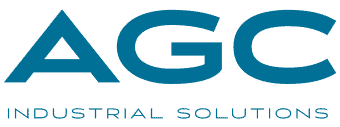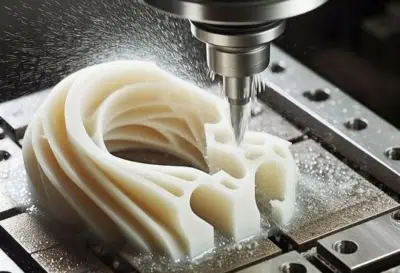Plastic, renowned for its versatility in molding, also offers an alternative manufacturing method: plastic machining.Machinable plastics can be different than the injectable ones as other mechanical properties are needed.
Machinable plastics comparison chart
| Material | Tensile strength (Mpa) | Flexural Modulus (GPa) | Impact Strength (kJ/m) | Density (g/cm³) | relative material cost | relative machining costs |
|---|---|---|---|---|---|---|
| Acetal (POM) | 55-80 | 2.7-3.4 | 4-10 | 1.41-1.43 | $$-$$$ | $$ |
| Acrylic (PMMA) | 72-80 | 2.1-3.0 | 17-20 | 1.17-1.20 | $$-$$$ | $$ |
| FR4 (epoxy/glass) | 200-400 | 30-45 | 5-30 | 1.80-1.90 | $$$ | $$-$$$ |
| Nylon (Polyamide, PA) | 50-80 | 1.2-4.1 | 35-150 | 1.13-1.15 | $$-$$$ | $$ |
| PEEK | 90-100 | 3.5-4.0 | 90-160 | 1.30-1.32 | $$$ | $$-$$$ |
| Polycarbonate (PC) | 60-70 | 2.1-2.4 | 6.0-8.5 | 1.20-1.22 | $$-$$$ | $$ |
| Polyethylene (PE) | 20-40 | 0.5-1.5 | 5-50 | 0.91-0.96 | $-$$ | $ |
| Polypropylene (PP) | 30-50 | 1.0-2.5 | 5-100 | 0.90-0.91 | $-$$ | $-$$ |
| Polystyrene (PS) | 30-60 | 2.0-3.5 | 10-50 | 1.04-1.06 | $ | $ |
| Polyvinyl Chloride (PVC) | 40-60 | 2.0-3.5 | 10-50 | 1.35-1.45 | $-$$ | $-$$ |
Tip:
The data is alphabetically sorted to ease its review.
Remarks:
- Tensile Strength: Measures the maximum stress that a material can withstand before breaking while being stretched or pulled.
- Flexural Modulus: shows material’s stiffness when it is bent.
- Impact Strength: indicate the material’s ability to resist a high-force or shock load without fracturing.
- Density: The mass per unit volume of a material. It can be compared to the density of water which is 1.00 g/cm3.
- Melting Point: The temperature at which the material changes from a solid to a liquid state.
- Price per kg: Approximate cost of the material per kilogram, which can vary based on market conditions and supplier.
Disclaimer : above information are only to be used for comparison purposes.
Remark :
Contrary to the injectable plastics raw material which are bought in pellets, for machining plastics it is necessary to source raw material in the form of blocks or plates.
Machining plastics will also results in much more waste than injection, waste that are mostly non-reusable in the process, they have to be recycled by other means.








